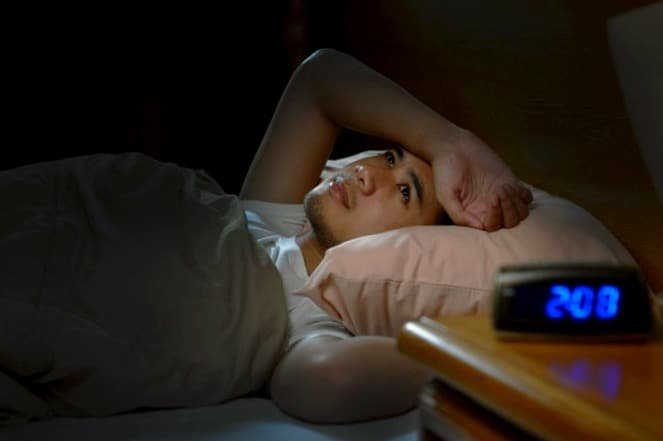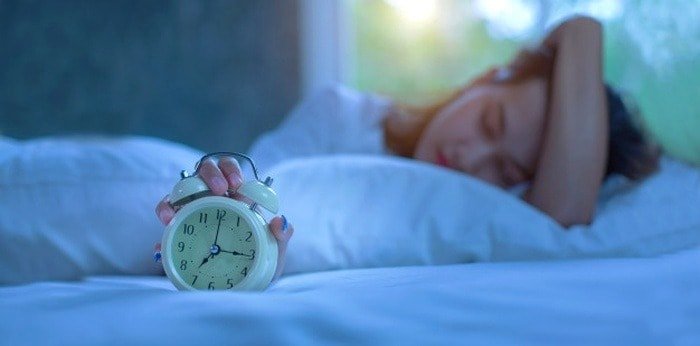FromEffects of sleeping lateand long nights awake, how much do you know?
Have you ever forgotten to set your alarm and wake up on time? This is not magic; it’s biology. Most living creatures, like fungi and plants, have a biological clock.

This clock is very accurate and is located in our brain, managed by the hypothalamus – exactly the part of the brain that connects the eyes to the brain. Our brain’s clock uses light to regulate the body’s daily cycle. This cycle is scientifically known as the circadian rhythm and informs us about the times to wake up, rest, eat, and drink.
It’s true that we all have this cycle, but that doesn’t mean it’s the same for everyone. In different individuals, this clock is set differently, meaning they have different body times. These different settings are called chronotypes and are not related to our preferences. In other words, people who prefer to sleep late at night and wake up late in the morning will experience exactly that because their biological clock is set this way.

But if you listen to your body’s clock and act accordingly, will it benefit you?
The problem is that many night owls try to behave according to their body’s circadian rhythm and become early risers. For example, they wake up with the light of day, go to work early, and finish their tasks, aiming for maximum productivity before heading home to stay awake until 2 AM.
This cycle can certainly be the most ideal situation. Therefore, in this section of healthSelMagzwe introduce the effects of sleeping late at night, which will certainly be helpful.

Effects of sleeping late at night


Reduced immune system
If you suffer froma coldorthe fluat any time of the year, how you sleep can greatly affect your recovery. Lack of sleep disrupts the immune system and reduces the ability to fight viruses.
Obesity and weight gain due to sleeping late
Sleeping less equals weight gain. Studies show that people who sleep less than 7 hours a night are more likely to be overweight than those who have adequate sleep because sleep disturbances reduce leptin levels, which is a chemical that makes you feel full. They also increase ghrelin levels, which is a hormone that stimulates hunger.

Reduced mental health
Lack of sleep at night causes irritability and bad moods in individuals, which may have long-term effectsdepressionandanxietyas well. When individuals face mental health issues, they should examine their sleep habits. Many of them likely sleep less than 6 hours at night.
Risk ofdiabetesdue to lack of sleep
Studies show that people who typically sleep less than 5 hours a night have an increased risk of diabetes, and thuslack of sleepcan be a factor in developingtype 2 diabetesbecause your body becomes incapable of using glucose and converting it into energy.

Reduced sexual desire due to sleeping late


Men and women who do not get enough sleep at night have lower sexual desire. Men suffering from sleep apnea, a disorder that causes breathing problems during sleep and makes a person wake up, usually have lower testosterone levels that reduce their sexual desire.
Risk of metabolic syndrome
Staying awake at night can lead to problems such as lack of sleep, poor sleep quality, and even eating at inappropriate hours, ultimately resulting in metabolic changes in the body. Developing a correct and timely sleep pattern is vital in reducing the risk of metabolic syndrome, abdominal fat, and thus lowering the risk ofheart attack,strokeand diabetes.

Infertility as a result of insufficient sleep
The need for significant effort to have children is a consequence of insomnia for both men and women. It seems that regular sleep can improve this issue.
Sleeping late can cause heart problems
Staying awake at night can be a factor in heart problems, increasingblood pressureand high levels of certain chemicals that contribute to inflammation and put strain on the heart.

Headachesand back pain due to sleeping late at night


People may adapt to disordered sleep but may never actually achieve it. Sleeping late at night is a factor for causing headaches and sometimes back pain that can occupy more than half of your day. Theseheadachesmay also be a cause ofcoughingand mild fevers in some individuals.
Lack of focus due to sleeping late
When the brain hasn’t rested enough, concentration during work, study, or social interactions decreases. In fact, as mentioned in SelMagz’s health section, you may feel like you’ve never been focused and just stare at people, appearing foolish. It can also lead to irritability. So if you go to bed late and your coworker is well-rested, you’re likely always behind.

Lack of happiness due to sleeping late
Humans need dopamine to feel happy. When you sleep late at night, this chemical isn’t produced, and consequently, the body experiences a shortage, leading to involuntary feelings of sadness and dissatisfaction, which can be considered one of the main side effects of night staying up.
Disruption of eating habits due to sleeping late
Sleeping late at night definitely disrupts dietary patterns and may make slim individuals even slimmer.Weight lossthat you don’t expect, consequently harming the immune system.
Therefore, with all the things we’ve discussed, always try to develop the habit of going to sleep before midnight because after midnight, you’ll face these side effects.







